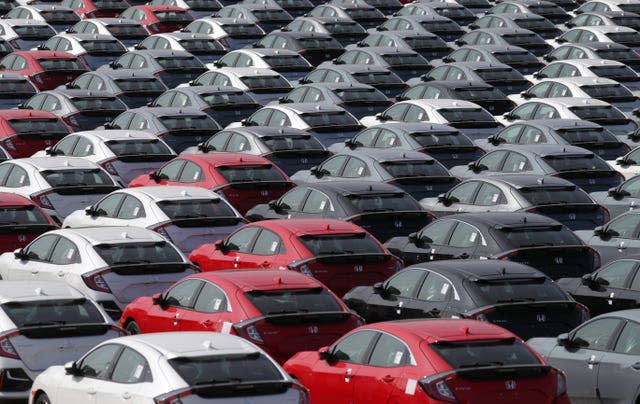Insurance pricing shake-up: what you need to know
Loyal insurance customers renewing their home or motor policy will get the same deals as new customers under a radical pricing shake-up.
Here is a look at what the problems are in the sector and how the Financial Conduct Authority (FCA) intends to fix them:
– What are the problems?
Insurers often quote higher prices for existing customers than for new ones – this is known as the loyalty penalty. The extra amount balloons year after year.
Some firms’ practices may also discourage consumers from shopping around, including making it difficult to cancel automatic renewal.
Renewal quotes for home and motor insurance won’t be more expensive than quotes for new customers pic.twitter.com/QdtwyfbvzF
— Financial Conduct Authority (@TheFCA) May 28, 2021
– How widespread are loyalty penalties?
Ten million policies across home and motor insurance are held by people who have been with their provider for at least five years, the regulator said previously. As many as six million UK consumers could be harmed.
– How big are loyalty penalties?
The regulator previously found new customers pay around £285 for motor insurance while customers who have been with their provider for more than five years pay £370.
New customers for combined buildings and contents insurance pay £165 while customers who have been with their provider for more than five years pay £287.
And new customers for contents-only insurance pay £56 while customers who have been with their provider for more than five years pay £138.

– Is a customer’s age a factor?
Yes. Motor insurance customers aged under 45 remain loyal for less than two years on average. Customers aged 65-plus typically stay loyal for more than four years.
The trend is similar for home insurance, the FCA said.
– So what is the FCA doing?
Under the new rules, existing customers will be quoted the same price as new customers.
The new rules will also give most consumers easier methods of cancelling the automatic renewal of their policy. Home and motor insurance firms will also have to report data to the FCA so it can supervise the market more effectively.
– When will the shake-up happen?
Rules on pricing and auto-renewal come into effect on January 1 2022.
– What will change?
Loyal consumers who remain with their insurance provider can be sure they will not end up paying high prices simply because they have not switched.
The measures will save consumers an estimated £4.2 billion over 10 years.
– So will my premium remain fixed?
Premiums may still change – for example if you have made a claim on your policy then you might be quoted a higher price.
But you should not be charged more simply because you are an existing customer.
– Will there be no point shopping around?
It is still worth looking for better deals elsewhere – and the new rules do not stop you negotiating with your current provider either.
Differences in firms’ products and service quality will remain a good reason to switch.
– Could some regular switchers, who are often younger customers, end up worse off?
Habitual switchers might find premiums offered increase and discounts may not be as common or significant.
The FCA said: “We recognise that our interventions could lead to price increases for price-sensitive consumers, including younger consumers, who regularly shop around for their insurance.
“However, current new business prices are often unsustainably low as they are designed to attract customers who will pay significantly more in the future or are subsidised by loyal customers. We do not think this provides fair value to consumers overall. Nor are these very low prices always offered to regular switchers.”
– What else can influence the policies people choose?
Promotions can undermine consumers’ ability to select the best deal. Participants in an FCA experiment were particularly attracted to promotions that included a pound sign or a percent sign.
Non-cash promotions such as a free toy or cinema tickets have a small and arguably economically negligible effect on participants’ ability to select the best insurance deal and assess policy prices correctly, researchers said.

 Yahoo Finance
Yahoo Finance 